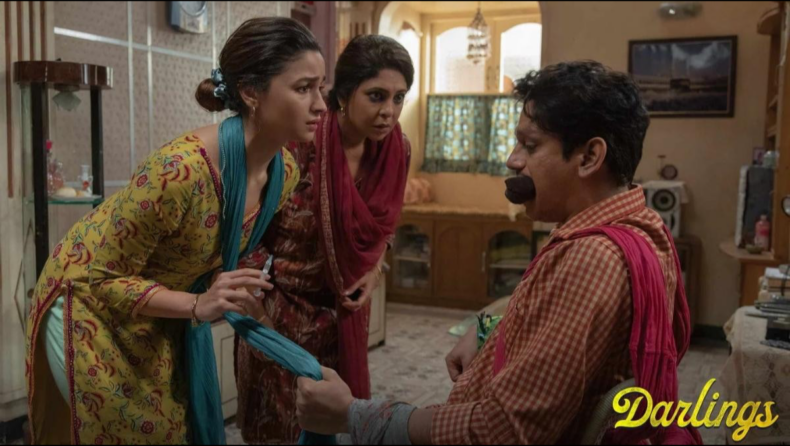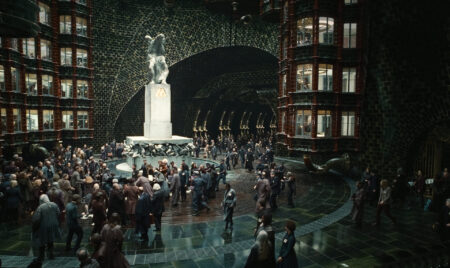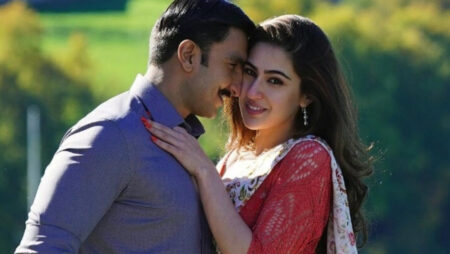“Darlings” the new Netflix film starring Alia Bhatt and Vijay Varma creates an expected controversy but shows an important new perspective on domestic violence.
The new, much talked about film “Darlings” has certainly a much needed dialogue. The film looks at domestic abuse in a light that is very rarely seen in Bollywood. Darlings is able to paint a very jarring reality but does it in a very tongue-in-cheek way. What is most refreshing about the film is its ability to be honest and not preachy.
What is “Darlings” about?
The film follows the story of Badru played by Alia Bhatt and her abusive husband Hamza Shaikh, played by Vijay Varma. Badru and Hamza are a couple who have a “love-marriage”. However, the ‘love’ in their marriage is often under the guise of manipulation and abuse. Hamza is an alcoholic in denial. In fits of rage, Hamza torture and torments Badru. Actions that he later blames on the alcohol.
Another important role is that of Shamshu, played by Shefali Shah. Shamshu is Badru’s mother, a single woman who raised Badru by herself from when she was little. Shamshu is completely against the violence in her daughter’s marriage and constantly plots ways with her daughter to fix the problem.
Darlings is able to use a sensitive issue like domestic abuse and tell a story that is familiar to a lot of people. In all its absurdity, the dry humour in Darlings depicts an image that cannot be not black and white.
Why “Darlings” is an important film.
Despite the backlash that the film was bound to receive, Darlings is a much needed film in the current Bollywood industry. It does not sugar-coat the story, nor does it ignore the ugliness. The viewer can see the cage of terror that Badru is trapped in. A cage that to people in a perfect world seems so easy to escape.
Badru longs for a big life. She has goals and plans, but unfortunately she is dependent on Hamza to get to where she wants. Hamza, bestowed with the power he can yield from the patriarchy, can do as he pleases when his power is most received. At home.
Though Hamza, being a man, is ideally supposed to have all the respect and dignity that comes with, he doesn’t. Darlings also explored the angles of class when talking about Hamza’s character. He is meant to clean toilets and do other odd jobs, when his real duty is to be a railway ticket collector.
The audience can feel Badru’s terror because of the matter-of-fact way in which abuse is presented. Badru’s need to stay with Hamza, moreover, to stay in love with Hamza, to her is a form of protecting herself. For most of the movie, Badru protects herself with denial and enables Hamza by blaming herself. Until finally, she doesn’t and the tone of the movie changes.
Women telling women’s stories.

One of the reasons why the tone of Darlings is so stark and real is because of who is telling this story. Darlings is written, directed as well as produced by women. Jasmeet Reen the director and co-writer aptly creates a film that is needed.
A film, if it was a typical Bollywood film would ideally resolve all its issues. But, Darlings looks at the fact that life is way more complicated than that. This fresh perspective is best illustrated when told by women. A story of a woman’s predicament told through a woman’s perspective. The perspective of a woman’s reality in a world where her reality is often disregarded.
Moreover, what Darlings also realistically doesn’t do is create a saviour out of the men. While the well wishing men in the story want to help desperately, the only people that can help are the women helping each other.
This can be seen when Zulfi, played by Roshan Mathew, tries to help the situation but makes it considerably worse.
The film has well rounded characters all serving a purpose.
Though critically, the film does lag behind, it is still one of the most important narratives Bollywood has produced in recent times. It is a film that does not glorify abuse, but depicts the absurd normalcy of it. It doesn’t elevate victim blaming, just simply says that it exists.













